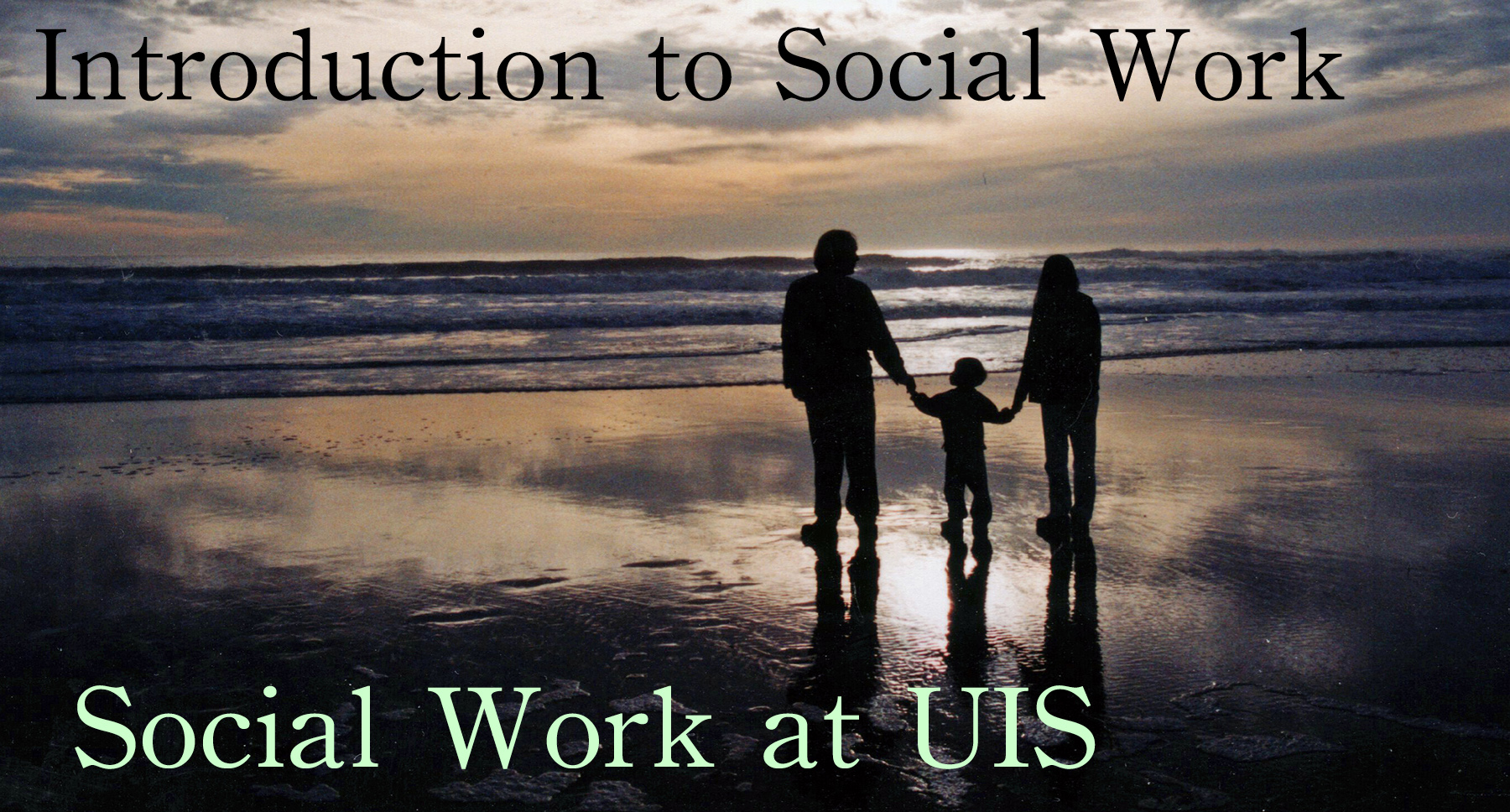Class meeting this week is on discussion boards with no Zoom meeting.
Your instructor will probably not be available on Zoom this week, but possibly there will be open office hours on Zoom, but the time and date is yet to be determined, if indeed there will be any availability on Zoom this week.
Class session lasts from April 7th at 2:00 p.m. to April 14 at 1:59 p.m.
This page describes what you should do in this twelfth session.
Objectives of this session
- Discuss Known to Social Services. Share our understanding of what is going on in the story.
- Consider how the social worker Diane Foster in Known to Social Services exhibits professional and ethical behavior.
- Begin reading Days in the Lives of Social Workers
- Understand some of the tasks handled by social workers in emergency rooms, inner-city high schools, and police departments.
- Understand some of the challenges faced by social workers in their work with police and persons who commit crimes such as sexual offenders.
- Understand some of the arguments about human rights and cultural practices such as genital cutting.
- Understand the role of systems theory and the Bio-Psycho-Social approach to planned change and assessment in social work.
- Understand some of the basic theories and frameworks informing social work practice.
- Know what some of the significant social work institutions and organizations are.
- Know in broad outline the history of social work.
Time Budget for 9 hours
2h 30m Class meeting on Zoom and time reading and posting in Canvas discussion board
1h 10m Read Chapter 1 (Social Work in the ER); chapter 10 (An Inner-City High School); chapter 33 (Social Work in a Police Department); and chapter 36 (Residential Treatment for Adolescent Sexual Offenders). If you are using the 4th edition rather than the newer 5th edition, there may not be a chapter about social work in a police department, but there are no quiz questions based on that chapter.
2h Use the internet to find current articles and reports and information about your paper topic. Read about your topic.
2h 20m Reading chapters 13 through 19 (pages 99-179) in Known to Social Services
1h Do the activity where pick a social worker or historical person conncted with social work and read about who they were/are and what they did/do, and possibly read something they wrote. Prepare notes to share with the class in the next class session discussion board.
What will happen in the class meeting at the start of this session?
During our 2.5 hours, I expect to use time in the following ways:
- We will begin class with check-in, as always. Please be ready to speak for a minute or less about how you are doing and what you are thinking. You might share one highlight of the past week (in terms of news about your life); one thing you are looking forward to in the coming week (personal and/or related to class); and then share some major insight or idea or fact you learned in the previous week that you think is worth remembering and keeping in mind. As you should have picked a topic for your paper last week, this would be a good time to share what you are thinking of writing about in your paper.
- We will discuss ways that social workers can work with police or ways that the range of tasks society has assigned to police might be distributed (partially) to social workers.
- Although everyone should post in the discussion board what you found about salaries and jobs for social workers, we will have some time to discuss that in the class session.
- Likewise, everyone should post what they learned about professions, but we will briefly review ideas about what a profession is and how social work is a profession.
- We will discuss Diane Foster, the social worker in Known to Social Services
- We will review all of the clients that Diane Foster has on her caseload (so far as we know from the narrative of the book).
- You will be invited to ask questions or make comments about Known to Social Services for the class to discuss or answer.
- I will explain what we mean by “generalist” social work practice, and ideas about generalist social work compared to specialized areas of social work.
- I will introduce the concept of human rights, one of the foundations of social work ethics, and we will talk about the specific case of cultural relativism presented in Known to Social Services where parental rights and respect for non-western cultural traditions are in conflict with concepts of human rights and the rights of children and the rights of women.
- I will reivew the role of systems theory and the Bio-Psycho-Social approach to planned change and assessment in social work.
What must you read this week?
Read Chapters 13 through 19 (pages 99-179) in Known to Social Services.
Chapters If you are using Days in the Lives of Social Workers 5th edition, the assignment is to read chapters 1, 10, 33, 36, and 55. These are the chapters “Social Work in the ER” and “An Inner-City High School” and “Social Work in a Police Department” and “Residential Treatment for Adolescent Sex Offenders” and “Working with Unaccompanied Minors in Britain”. If you are using the 4th edition, these are chapters 1, 12, 35, & 53 (pages 29-37; 103-108; 257-261; 375-380).
Work on your paper.
Hopefully, you came up with a topic area to investigate last week. This week, you should narrow your focus and spend a couple hours reading articles about your topic. This will help you decide what sort of a paper you want to read. Use the Mendeley App (or an equivalent) to keep copies of the sources you’re using for the paper.
Activities
I expect you to use about an hour of your time in this session to do the following activities (homework assignments). As our initial Zoom session may be fairly short, these activities are considered part of the class session.
- If you are taking the lab that goes with this course, you really had better get a list of possible placements for your service and start contacting people to see whether they could use 30 hours of your time as a volunteer this fall.
- If you attend the Zoom class meeting, spend about an hour posting and reading posts in the Canvas discussion board. You should have time to post five-to-ten responses to prompts and posts by your classmates.
Working on your Assignments
You have one special assignment this week (in addition to working on your paper)
- You should choose one social worker or figure from the history of social work. This could be any social worker, including a social worker you currently know. The easiest thing to do may be to pick one of the famous historical social workers mentioned in the class lecture on historical social workers.
- Spend 20-40 minutes reading about this person or talking to them. What are they known for? What did they do? What was their impact on society or the social work profession (or on your own life).
- Spend 10-20 minutes reading something this person wrote, and see if you can find a quotation or an observation from this person worth sharing or remembering.
- Spend 10-20 minutes writing down some notes about this person, and ideally, get the quotation with a citation for its source. Write about how you feel about this person.
- Your assignment for this week can be posted in the discussion board (as your response to the 5th discussion question in the second session). Share what you learned about this person with the class in the discussion board.
Discussion Questions this week
Here are the discussion questions. You should have time to answer a few of them, and also respond to some of your classmates. Remember to devote at least an hour to the discussion board participation, even if you attended the Zoom class meeting.
- Discussion Question 1:
Discussion Question 12-1: This is the question I hope people will answer, where you tell your classmates and instructor some anecdotes about your life or your current emotional state. There is credible evidence that if students in a class bond (through social interactions such as the ones encouraged by the check-in question for each session) together, they will learn more and retain more of what they learn in a class. So, although these initial discussion questions ask nothing of substance about what we are learning in the class, I value your friendly responses to each other and your reports on how you are doing in these threads even more than a value the intellectual and academic work the other questions demand.
- DQ 12-2: Responsibilities related to client records
Discussion Question 12-2: First ethics discussion question for the session. What are some social worker responsibilities related to client records? Why are these responsibilities important and part of our professional ethics as social workers?
Part of the implications that follow from our ethical duty to protect client records involve our keeping client records secure. For example, they should be kept in locked and secure locations. Paper files may be in locked file cabinets in locked rooms in a building that is kept locked at night and on weekends; it’s generally a rule violation to leave a client’s files on your desk when you leave the office at the end of the day, or in the back seat of your car when you stop lunch somewhere. Even on a computer, you need to be sure that the computer has good password protection, and client files in computer systems are protected by strong passwords and security. Strong locks and passwords and secure software become ethical considerations for social workers when we think about how to protect client records.
Clients generally have a right to see their records as well, so that is one thing social workers need to keep in mind as you write case notes; those case notes might be seen by the client, and you should assume they will be.
The ethical rule that client records and case notes are only to be seen by the social worker has some caveats. First, you may have a supervisor who has a right and duty to look over the case records. But this is covered, since the supervisor has a role in the treatment of your client (indirectly, your client is also your supervisor's client). And, it is sometimes allowable to share case records and reports with colleagues. For example, in our field there is often a treatment team that meets to discuss clients. All the persons at such a meeting are professionals who have a role in treating the client, and therefore the rules about confidentiality of client records are honored because there is an exception to the confidentiality rule for situations where you are consulting with colleagues in their professional capacity to discuss the best course of treatment or intervention. But, it’s important to understand that these exceptions to the rule about strict confidentiality are really only valid when you share information with colleagues in their professional capacity in consultation about how to proceed with a client (as in a treatment team meeting). It’s unprofessional and unethical to gossip about clients with colleagues. It may sometimes be helpful to share anecdotes about experiences with clients or client experiences, as sharing some of these stories may help prevent burn-out and might offer professional insights to colleagues or classmates, but when sharing anecdotes, it's extremely important to not share information that could allow anyone to identify the client. We might also share anecdotes (without identifying specific individuals) when giving testimony or engaging in policy practice, since such anecdotes may be an extremely effective way to sway the opinion of a legislator or administrator, thus encouraging them to improve laws or policies to benefit clients.
So, why are these responsibilities important and part of our professional ethics as social workers?
- DQ 12-3: Ethics, exploitation or potential harm
Discussion Question 12-3: Second ethics discussion for the session: Give an example of a relationship between a social worker and a clients or former client in which there is a risk of exploitation or potential harm to the client/former client. Explain the risk.
- Discussion Question 4:
Discussion Question 12-4: In Chapter 3 “Bad Bad Dream” we encounter Ms. Jacobs. She seemingly leads a fairly normal life, and is functioning pretty well, but evidently has some sort of a psychotic episode involving intense delusions and an inability to distinguish between dream and fantasy and reality. Her subsequent actions lead to the death of her daughter Shaniece and her son Paul. Brief Psychotic Disorder (described by Marc Parent as "blackness") is characterized by delusions and hallucinations; extreme and sudden mood changes, and disorganized behavior.
Social workers in the child welfare sector often must make recommendations to judges and other authorities about parental custody and termination of parental rights. Low-income persons with mental illnesses are more likely to have their children removed from them and placed in foster care, and in a long-term follow-up study, they were also highly likely to have new maltreatment reports (see Kohl, Jonson-Reid, & Drake, 2011). From the information Marc Parent gives us in Turning Stones it seems Ms. Jacobs was a good parent who loved her children and did not mistreat them until the morning she woke up with a profoundly disturbing psychotic break.
Can you imagine circumstances where a competent social worker might recommend that Ms. Jacobs be allowed to have custody of her three remaining children? From the way Parent describes the situation, does it seem that Ms. Jacobs is morally (and criminally) culpable for the deaths of her children (even Paul, whom she pushed out the window)? How do we determine whether a parent can have custody, and how do we determine whether a person is responsible for their actions?
-
























